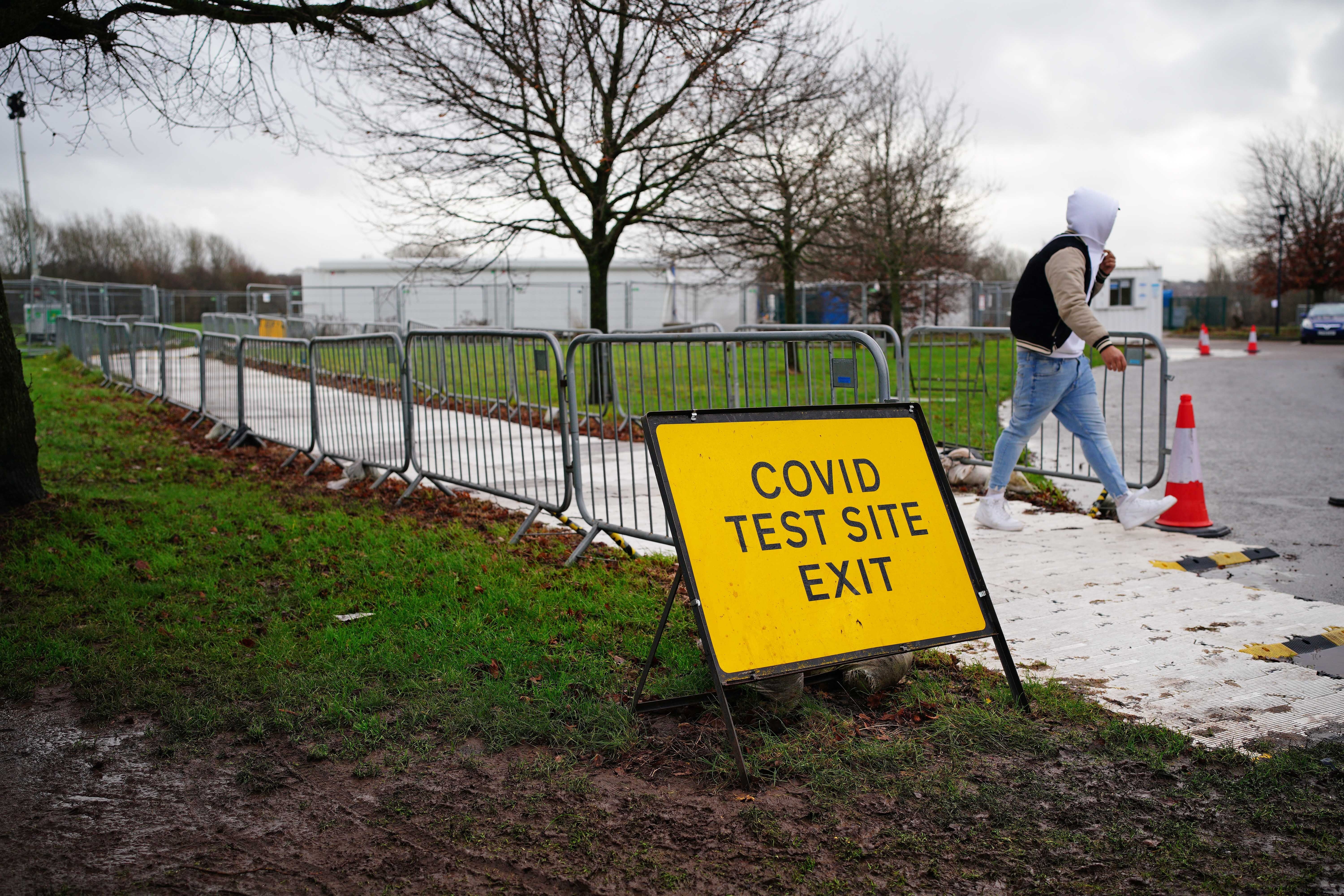‘One per cent of UK population’ newly infected with Covid-19 every day
Only one in eight new infections are being counted on the Government dashboard.

Your support helps us to tell the story
From reproductive rights to climate change to Big Tech, The Independent is on the ground when the story is developing. Whether it's investigating the financials of Elon Musk's pro-Trump PAC or producing our latest documentary, 'The A Word', which shines a light on the American women fighting for reproductive rights, we know how important it is to parse out the facts from the messaging.
At such a critical moment in US history, we need reporters on the ground. Your donation allows us to keep sending journalists to speak to both sides of the story.
The Independent is trusted by Americans across the entire political spectrum. And unlike many other quality news outlets, we choose not to lock Americans out of our reporting and analysis with paywalls. We believe quality journalism should be available to everyone, paid for by those who can afford it.
Your support makes all the difference.Around one in every 100 people in the UK is likely to have been newly infected with Covid-19 per day during the current surge of the virus, figures suggest.
Infections are estimated to have climbed as high as 657,300 every day by March 16, according to new modelling published by the Office for National Statistics (ONS).
This is the equivalent of roughly 1% of the population.
It is also more than double the number of daily infections that were occurring at the end of February.
The figures suggest that by mid-March the virus was circulating at levels higher even than those reached during the Omicron-led surge at the start of the year.
More data is needed before estimates can be made for the number of new infections in more recent days, however.
The modelling is based on results collected as part of the ONS weekly Covid-19 infection survey of private households.
Sample sizes are smaller for Wales, Scotland and Northern Ireland than they are for England, meaning margins of error are wide and care should be taken in interpreting results, the ONS said.
But the estimates suggest that the steep jump in new infections that began at the end of February has continued well into March, mirroring the sharp rise in the overall prevalence of the virus at the same time.
They are also another reminder of just how many infections are being missed from the official figures published each day on the Government’s coronavirus dashboard.
There was an estimated 4.2 million people newly infected with Covid-19 in the UK in the week to March 16, according to the ONS.
This is nearly eight times number recorded in the same period on the dashboard.
Responding to the figures, Professor Kevin McConway, of the Open University, acknowledged that routine testing for Covid-19 is never likely to pick up all infections, because “some people don’t have any symptoms and some may choose not to be tested”.
“But until about the start of February, generally a third and a half of the estimated new infections from the survey were being recorded as new cases on the dashboard,” he continued.
“So the fall to about an eighth is large, and not at all encouraging for the accuracy of dashboard trends in case rates.”
He added: “One in every hundred people being newly infected every day is a really high rate.”
Separate figures published by the ONS on Friday showed the prevalence of coronavirus in the UK has reached record levels, with 4.9 million people likely to have tested positive for the virus last week, up from 4.3 million the previous week.
The latest wave of infections is continuing to be driven by the Omicron variant BA.2, the ONS said.